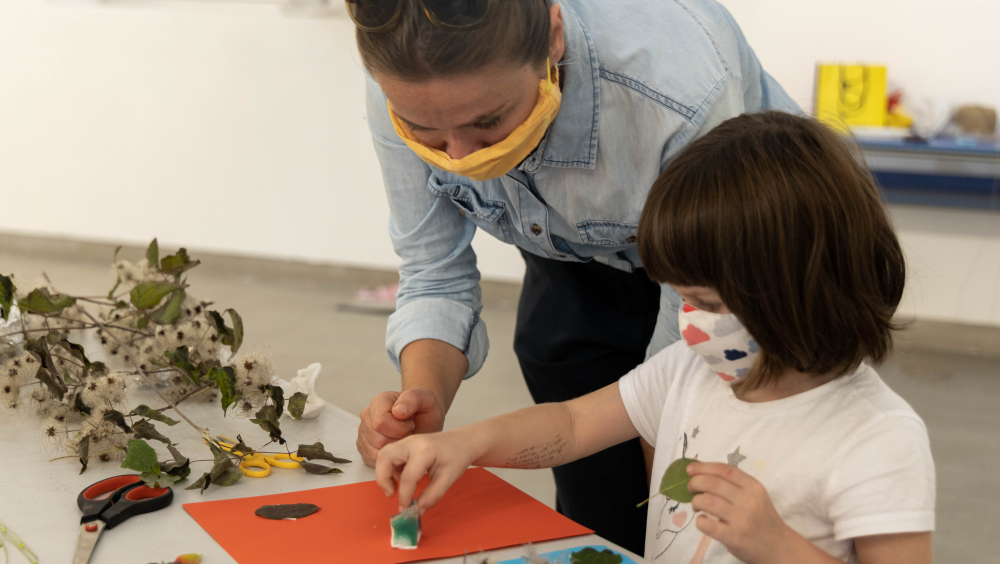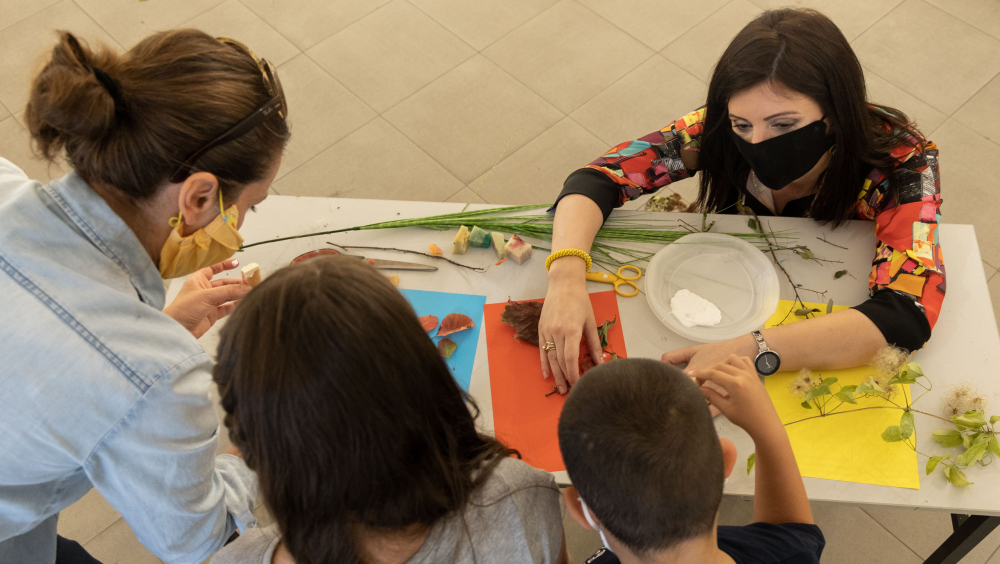OHRID 365, Social Inclusion
The creative workshops for children in the city with 365 churches is an excellent opportunity for children, whether they are from regular school programme or children with disabilities to create art, to learn about cultural heritage and most importantly - to make new friends and learn from each other about those that are different from themselves. Owing to the large number of churches and monasteries, the city is known as the Balkan and European Jerusalem.
The idea is that we make through another success story, titled OHRID 365 and teach these young people about the importance of cultural heritage, identity and promoting care for treasure that identify us as a country, and frames of the common European heritage. We cannot live without socializing with each other and without having a caring and common connection, regardless of the current circumstances.
In the recent years, in the Republic of North Macedonia, very little attention has been paid to the cultural needs of people with disabilities, and even less to their participation in the creative art processes. In the past years, the National Gallery of the Republic of North Macedonia proved itself to excel in the creation of positive environment for these persons to express themselves more easily. It can be rightly said that the National Gallery of the Republic of North Macedonia is one of the leading state-owned socially responsible institutions.
To confirm the aforementioned - the largest art educational project ever organized by the National Gallery, titled as "Art for All" was implemented under the support of the Dutch Embassy. The project included children from the earliest school age and up to the age of graduation from high school, and its ultimate goal was socialization and social inclusion of persons with disabilities. The Art for All Project was funded within the MATRA Programme, which is a bilateral programme of the Dutch Ministry of External Affairs, which is open to all the countries that are on their way to becoming members of the European Union. This type of projects encourages social transformation and collective awareness development, which are crucial to reaching European Union standards, as well as respecting European values.
It is essential that people and children are not classified on the basis of abilities, but the focus is on their functionality, their potential, and even their ingenuity. Hence, to enforce their rights, it is necessary to constantly implement various projects in the field of culture, sports, education ... where these persons would express themselves in a more easy and simple manner. The appreciation and development of individuality is the basis for personal freedom and an instrument for everyone to express themselves in their own, unique way. This is what, in turn, leads to personal satisfaction and self-recognition, which with constant marginalization stand at a very low level.
The projects are an integrated part of the regular programme, after which the Gallery has been in a way acquiring its recognition for this type of educational projects, so in 2021 the escalation of the COVID pandemic did not obstruct the implementation of the CYBER-CULTURE Project, on the occasion of International Day of Disabled Persons - 3 December.
The advent of the Internet and digitalization in the everyday life has led to new forms of social activities that also include the field of cyber-culture. Cyber-culture is often associated with digital culture, internet culture, virtual culture, and so on. All this indicates a trend in the environment in which we live, the way communication and information exchange take place. The role of the Internet, which is a kind of Esperanto language, creates virtual and on-line communications that are generally accepted by people of all ages. The Cyber-Culture project is in fact a direct reflection, a kind of response to everything that is happening in the world, to everything that is happening to these young people, whether they are children from the regular school programme, or children with disabilities. They created various drawings, sculptures, collages, digital works in which they make their comments on Instagram, Twitter, Tick-Tock. What is the impact of the excessive spending time on social networks? Does the Internet govern their lives? They ask and answer important questions about social psychology, the relationship between the on-line and the present, the "real" and the "virtual", hidden or real identity, as well as the endless communication between all of us here and some people out there.
At the beginning of this 2022 - a new book, a new page, a new destiny.
The idea is that we make through another success story, titled OHRID 365 and teach these young people about the importance of cultural heritage, identity and promoting care for treasure that identify us as a country, and frames of the common European heritage. We cannot live without socializing with each other and without having a caring and common connection, regardless of the current circumstances. Hence the creative workshops for children in the city with 365 churches is an excellent opportunity for children, whether they are from regular school programme or children with disabilities to create art, to learn about cultural heritage and most importantly - to make new friends and learn from each other about those that are different from themselves.
Owing to the large number of churches and monasteries, the city is known as the Balkan and European Jerusalem. Ohrid region is declared UNESCO world heritage, the Ohrid trout and the Ohrid pearl are the main ambassadors of this city, our magnificent city that emerged under the slopes of Samuel's Fortress. All these are more than enough to visit and conquer it with love and a lot of art - we came - we created - we left love. Several-day workshops are planned, which will be delivered by experts. The creations of the participants will be presented in an exhibition at the National Gallery of the Republic of North Macedonia, on the occasion of 3 December, the International Day of Disabled Persons. Media coverage shall be organized for this event, same as it was organized for all our previous events. 365 churches in Ohrid - one for each day - and may every day be decorated with one creation from among our 365 creations. 365 reasons to be happy in 365 manners, so that we spread love. Let us share with the world and with the life - art and love!
The project encourages social transformation and collective awareness development, which are crucial to reaching European Union standards.
It also promotes respecting of European values. One of the primary goals of this project is the socialization of people with disabilities and raising general public awareness about them, their life, and their specific problems as such.
The vision of the project is to enable the development of the social feeling of tolerance and respect for diversity, while developing and raising awareness of the responsibilities of society towards these vulnerable people. In the workshops OHRID 365 young people will have change to learn about Macedonian cultural heritage as part of the common European heritage.
By this, we would like that the Republic of North Macedonia becomes a genuine home for these children and a place where they will feel equal and helpful.

